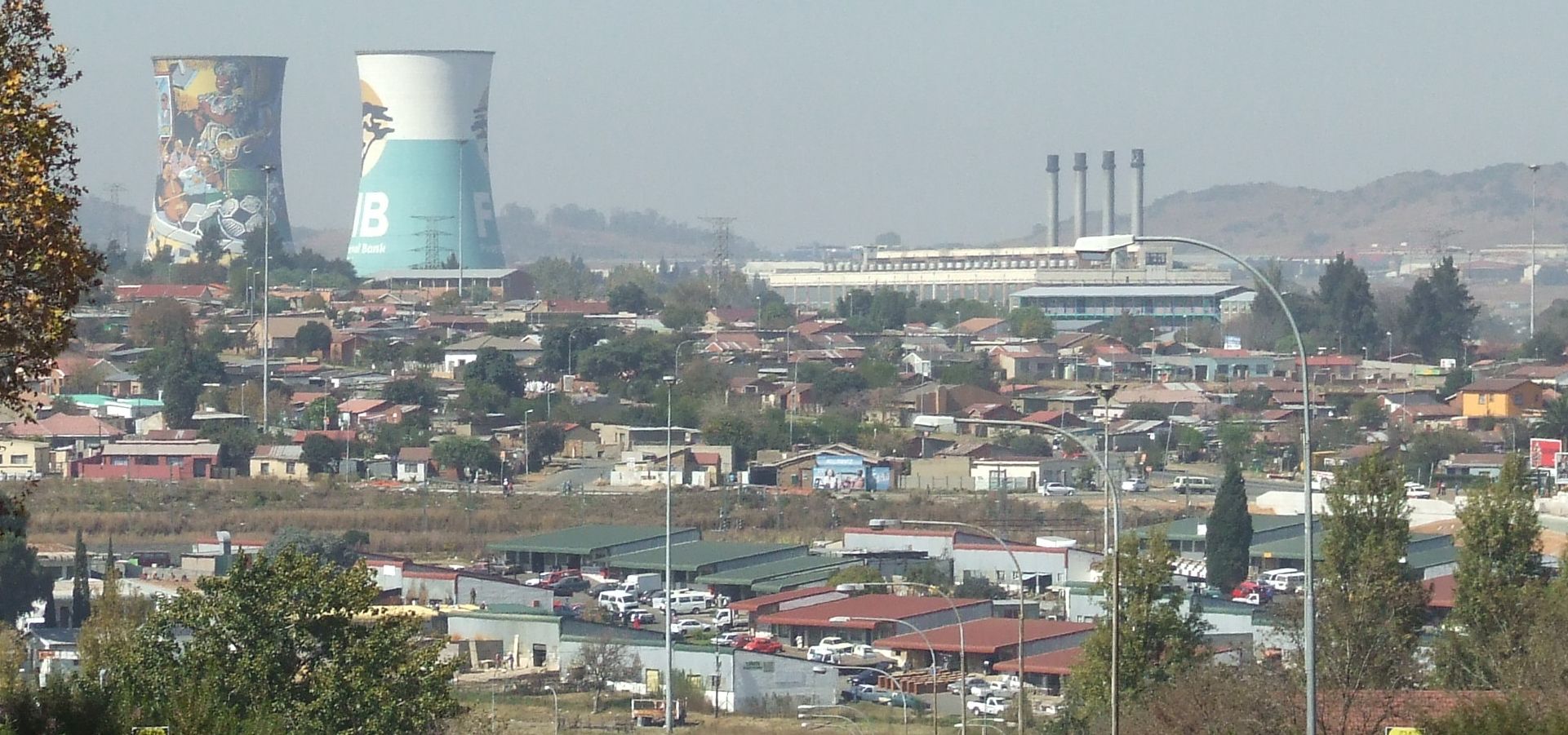The construction of new coal-fired power plants in South Africa has hit a major roadblock, with three of the biggest private banks saying they will stop funding dirty energy infrastructure developments here. Leonie Joubert reports

Some South African banks no longer invest in coal-fired power plants (Photo by Micheal Roger Denne, CC BY-SA 2.0)
A proposed coal-fired power plant, which was planned to be built about four hours’ drive north of Johannesburg, could be a forewarning for new coal developments in a middle-income country like South Africa, where the sun may be setting on carbon polluting infrastructure investments.
The 557 megawatt Thabametsi plant, earmarked for development near the mining town of Lephalale and close to the economic heartland of the country, has been on hold for almost two years, mired in legal battles and licensing delays. But the plant’s developers, Japanese-owned firm Marubeni and the South Korean firm KEPCO, hit another hurdle recently with three of the country’s biggest private banks, which were listed as possible funders for the project, announcing they would no longer extend finance to carbon-polluting new-coal developments in South Africa.
Standard Bank, FirstRand Bank Limited, and Nedbank all recently made public their new company policies relating to the funding of these increasingly outmoded and high-polluting technologies.
Standard Bank announced this April that all future investments in coal infrastructure would be subject to ‘a strict set of parameters’ that will align its investment decisions with the global emissions targets set out by the United Nations’ Conference of Parties agreements. For South Africa, and the industries operating in this country, that means reducing coal dependency by almost half by 2030, and phase it out by completely by 2050, according to Melita Steel, senior climate and energy campaign manager with Green Peace South Africa.
Standard Bank said in its statement that it recognised the role of the financial sector in using its influence within the investment community to enable this kind of transition to a lower-emitting economy.
Meanwhile Nedbank announced in its end-of-year Sustainable Development Review in 2018 that it will not ‘provide project financing or other forms of asset-specific financing where the proceeds would be used to develop a new coal-fired power plant, regardless of country or technology’. FirstRand Bank Limited mentioned the Thabametsi plant by name, when it said in November 2018 that it was withdrawing financing from the project ‘as currently proposed’.
The developers’ plans are also on hold because its water licensing application to the national Department of Environmental Affairs (DEA) has been challenged through various legal processes. In 2017, the Pretoria High Court overturned the DEA’s approval of the plant’s water license, on the grounds that the environmental impact assessment hadn’t considered the implications of climate change on the plant’s future ability to operate.
‘Coal fired power stations need a lot of water to operate,’ explains attorney Robyn Hugo, programme head on pollution and climate change with the Centre for Environmental Rights (CEJ), which helped bring the matter to court.
Lephalale is already a water-stressed part of the country, she explains, and future water scarcity will have a significant impact on the ability of a coal plant like this to function.
The state is appealing the court’s ruling, but in the meantime the development is on hold.
Local energy analysts warn that coal developers like this run the risk of being left with stranded assets in the near future, as global emissions reduction targets increasingly leave carbon intensive power plants penalised in a carbon-constrained global economy, and where the plummeting cost of renewables make the renewable energy market much more attractive for investors.
Jesse Burton at the University of Cape Town’s Energy Research Centre is the co-author of a 2017 report which looked at the viability of the Kusile power station, a 4 800 megawatt coal plant that the country’s national utility Eskom began construction on in 2008. The plant is still only two-thirds complete and construction costs have run significantly over budget.
Burton’s report recommends that the state considers abandoning further work on Kusile, because Eskom is in financial crisis, and the plant’s lack of competitiveness in the changing energy landscape.
A development like Kusile is already a ‘stranded asset’ because of the economics of new renewable energy, says Burton.
‘These coal stations are so much more expensive than alternatives. In a competitive market it would be impossible to recoup the costs (if plants like this are completed).’
This changing appetite of the big investors, in response to global emissions policy shifts and the quick market readjustment as the cost of renewables drops, might be a taste of things to come on this part of the subcontinent.